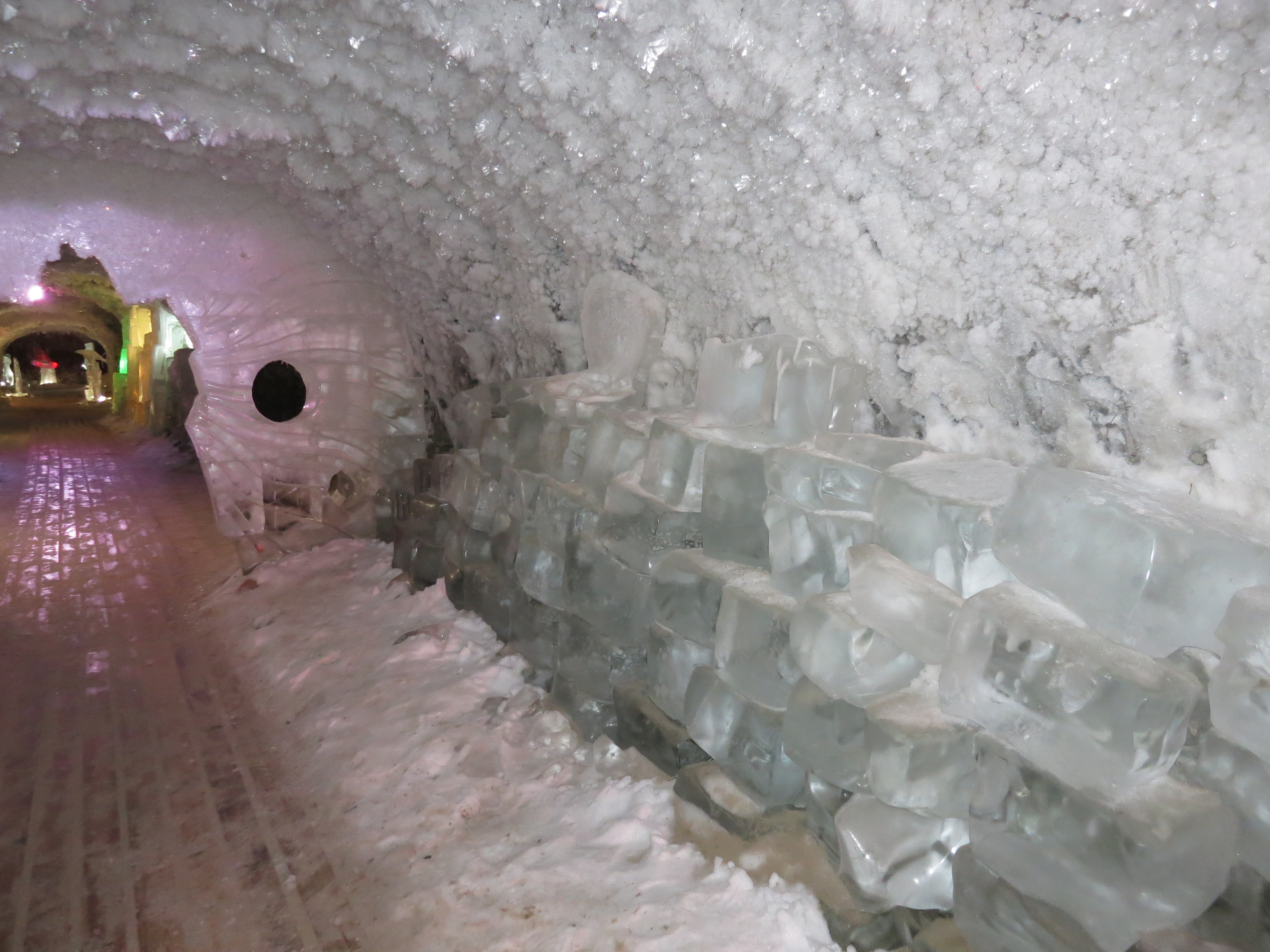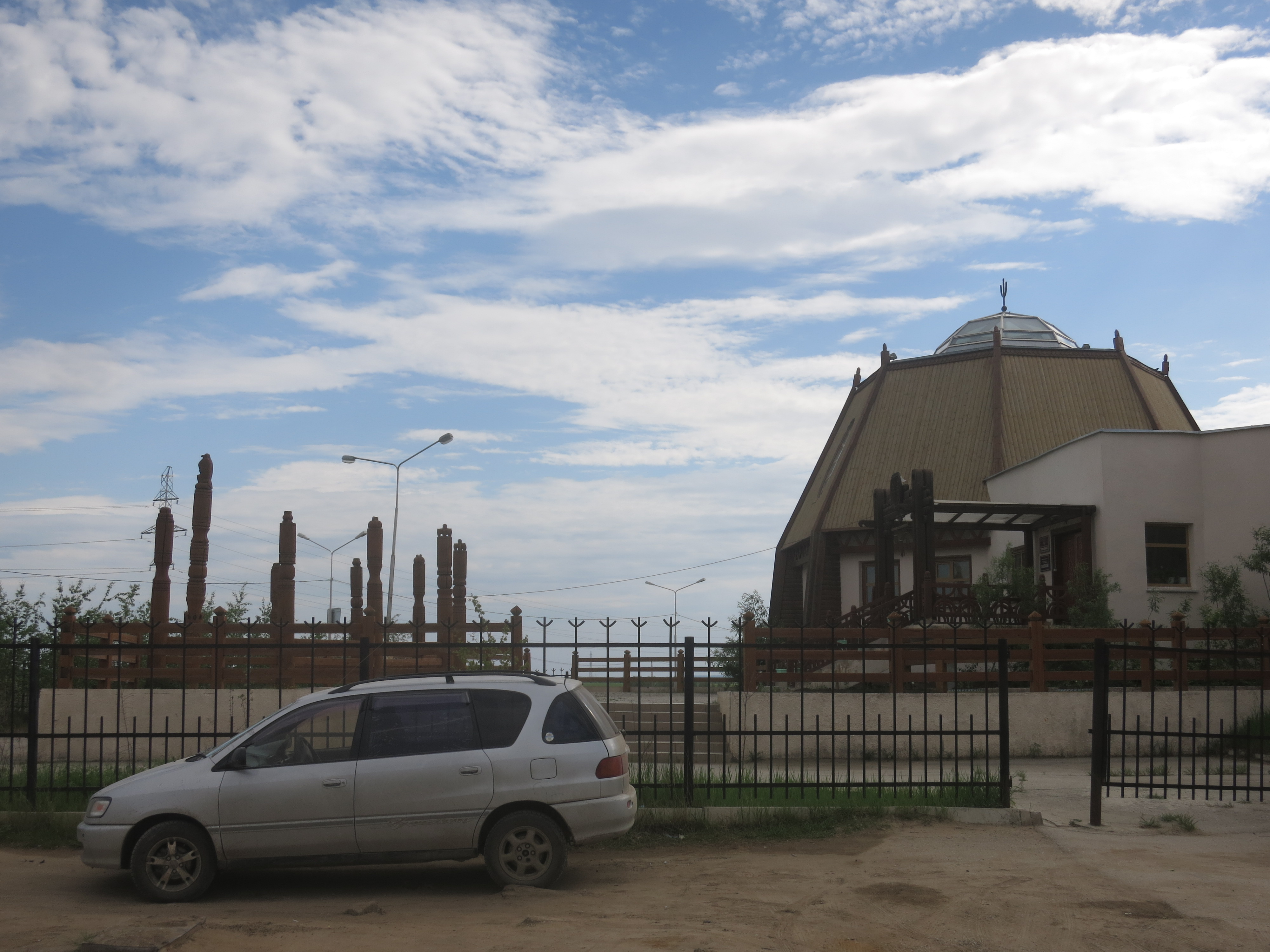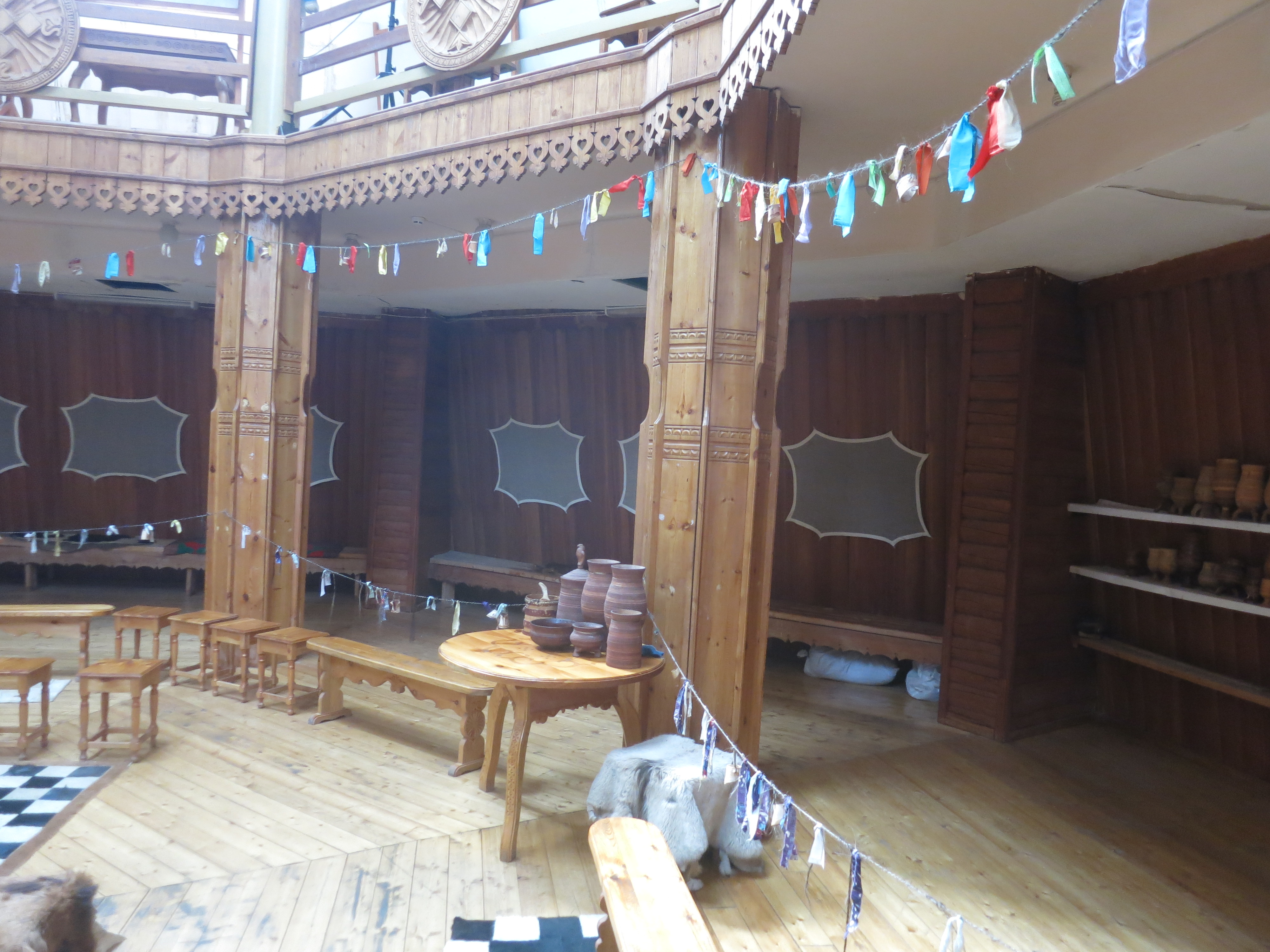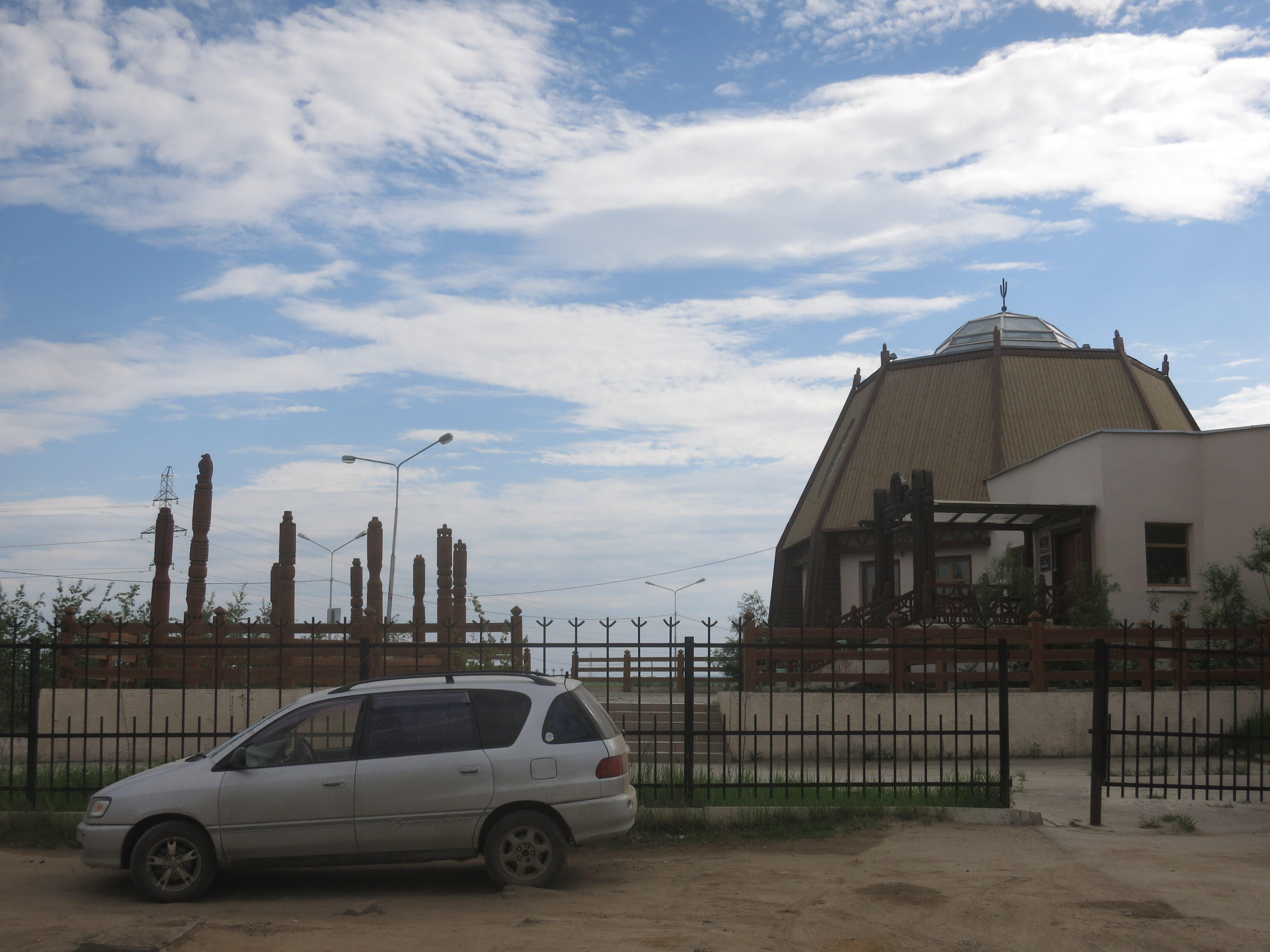Inside the Kingdom of Permafrost, Yakutsk
We finally reached Yakutsk, little-known and far distant, sometime before 4am.
We were kindly dropped to the door by our hitch-hiking hosts and tramped up the five flights of stairs to our couchsurfing host's place. He let us in, exchanged a few words, showed us to our room and went back to sleep. Outside it was already sunny; we were dusty, dirty and tired. After a brief splash of water we collapsed asleep until late morning.
After getting up and talking to another pair of couchsurfers, who were also staying there, we went off for a wander. Yakutsk still has much more of the feel of the Russia I knew in the 1990s; dilapidated buildings and roads, footpaths falling apart and a general air of neglect.
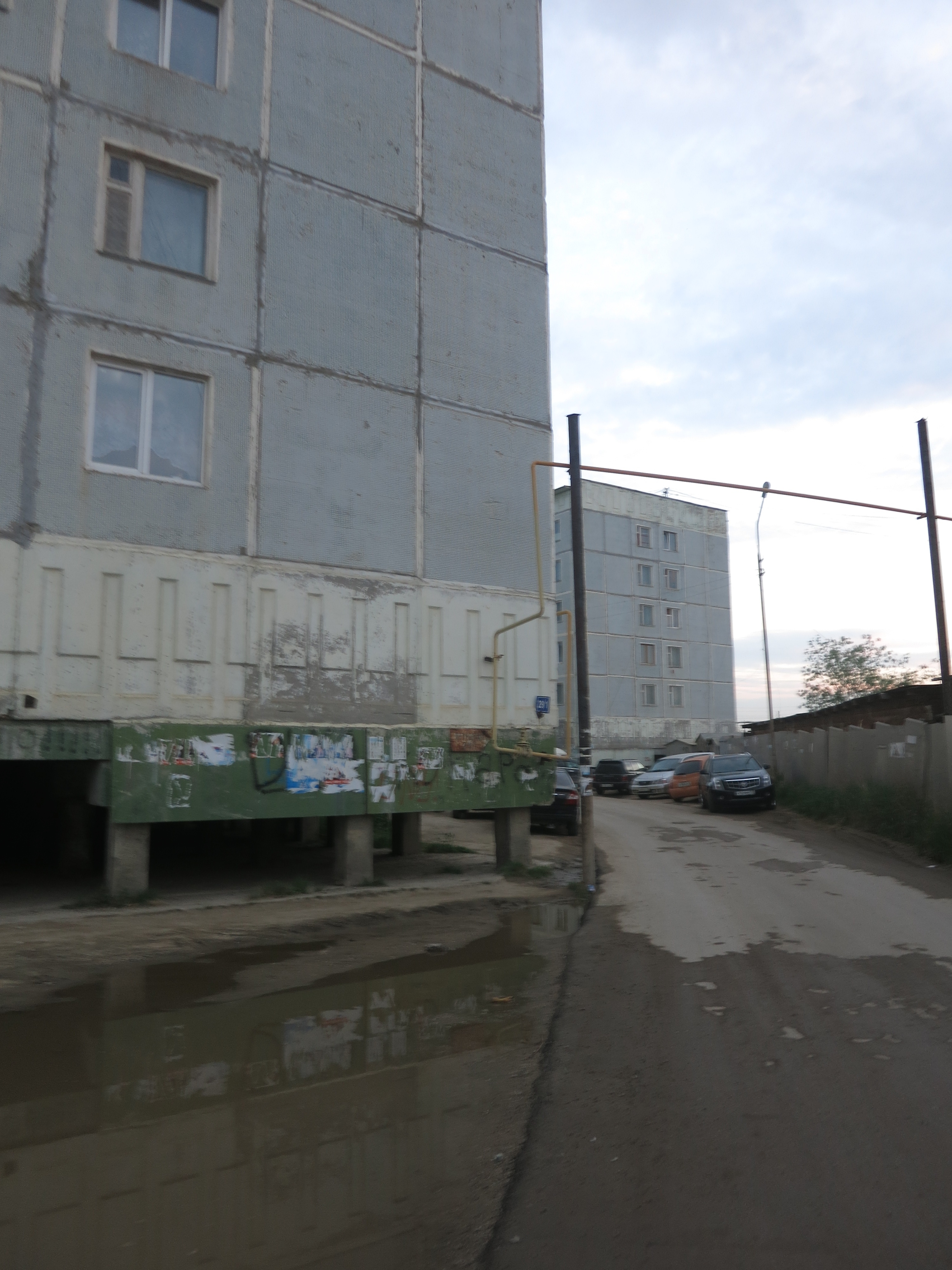 The block of flats we stayed in, in neglected condition, like much of Yakutsk's housing
The block of flats we stayed in, in neglected condition, like much of Yakutsk's housing
It's a long way away from any other large town and only reachable by road along the very poor road we had travelled – or from Magadan, a town on the northern Pacific coast much further along. The railway line has almost been finished to Yakutsk – or to the other side of the Lena river, which is over 8 km wide at the narrowest point – but not yet opened for travel. During planning for this trip I read various predictions about when it would open, starting from the middle of last year; the current plan is for late autumn, which, once operating, should make getting to Yakutsk far easier and, more importantly, pleasant!
Yakutia, the province (or oblast') of which Yakutsk is the capital, is massive – the size of India! And it's harsh, with temperatures regularly around -50 degrees in Yakutsk and colder further north, where the two coldest inhabited places in the world are, with recorded temperatures below -67 degrees! Yakutsk itself is the coldest place with over 10 000 inhabitants in the world. It is well within the permafrost zone; permafrost, for those who don't know, is the zone in the soil that remains permanently frozen throughout the year, and in Yakutsk is only a few metres below the surface, making rail, road and building construction incredibly challenging, as well as constantly moving and damaging flat surfaces like paths and roads.
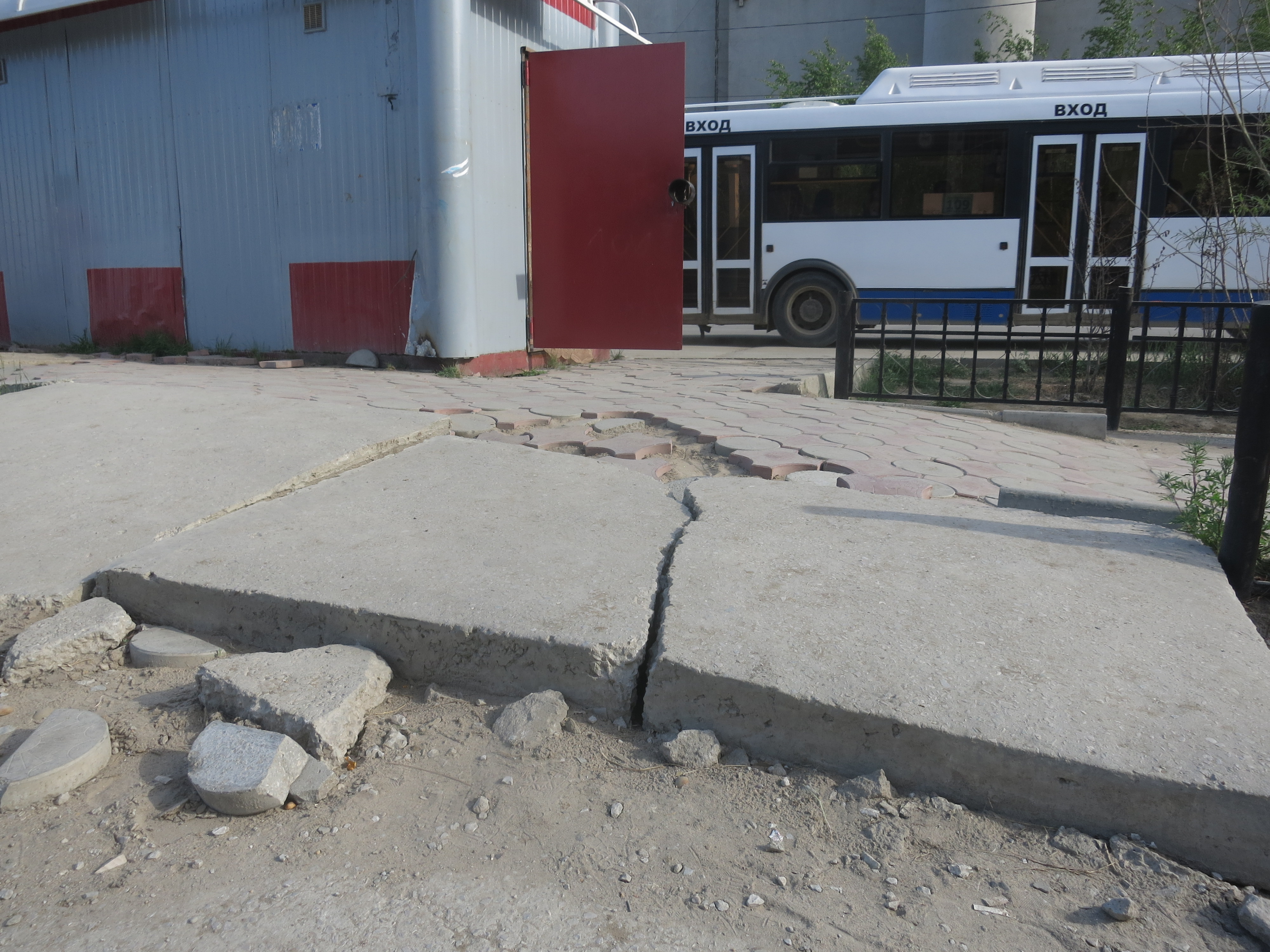
We stayed two nights and three days in Yakutsk and, though it was great to get to somewhere so far away on the map, we didn't really connect with people or the natural beauty like I'd hoped. Our couchsurfing host was pretty much completely absent, the house was pretty uncomfortable and the many responses I'd got on the local couchsurfing forum over the previous months didn't translate into meeting many people or getting out of the fairly grey town into the surrounding natural beauty or onto the vast Lena river. We did meet one really nice couchsurfer host, Vasilly, on the afternoon of the second day, who showed us around for a few hours, then met us, with his mate Victor, and took us to the Kingdom of Permafrost and the adjoining ethnographic park and restaurant. But, apart from that, a lot of time was spent wandering down the 15 minute walk along a busy road to town, then wandering around town. It was pleasant enough, but after such a monumental journey, a little disheartening.
The Kingdom of Permafrost
We got a chance to go into the permafrost on our last day in Yakutsk, going to the Kingdom of Permafrost, a series of two tunnels with side galleries that have been drilled into a small hill just outside of Yakutsk. After climbing the hill and looking over Yakutsk, we entered the ice!
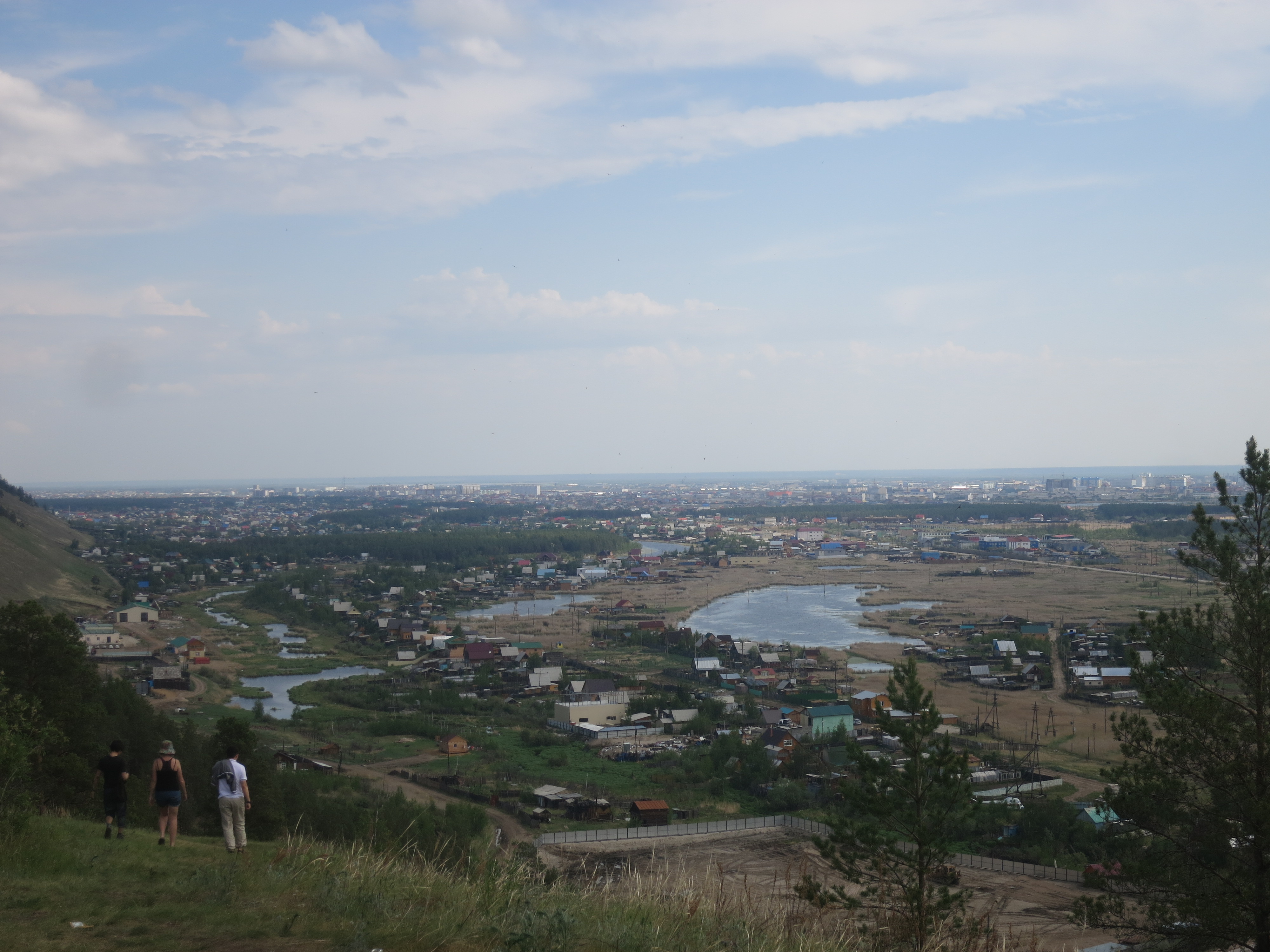
It was fantastic, all surfaces covered in ice, sometimes beautiful crystals formed by the condensation from visitor's breath, and throughout amazing ice sculptures on various themes, including on Sakha (the people indigenous to much of Yakutia) religious beliefs, as well as more frivolous things like a Santa Claus sculpture, complete with a Postbox! There was also a hotel with a double bed, covered in fur, and an ice bar, where you could have a shot of vodka from ice glasses. And all of this was in -10 degrees, so we were dressed in warm slippers and shiny silver capes, looking like some kind of ice space travellers from Dr. Who!
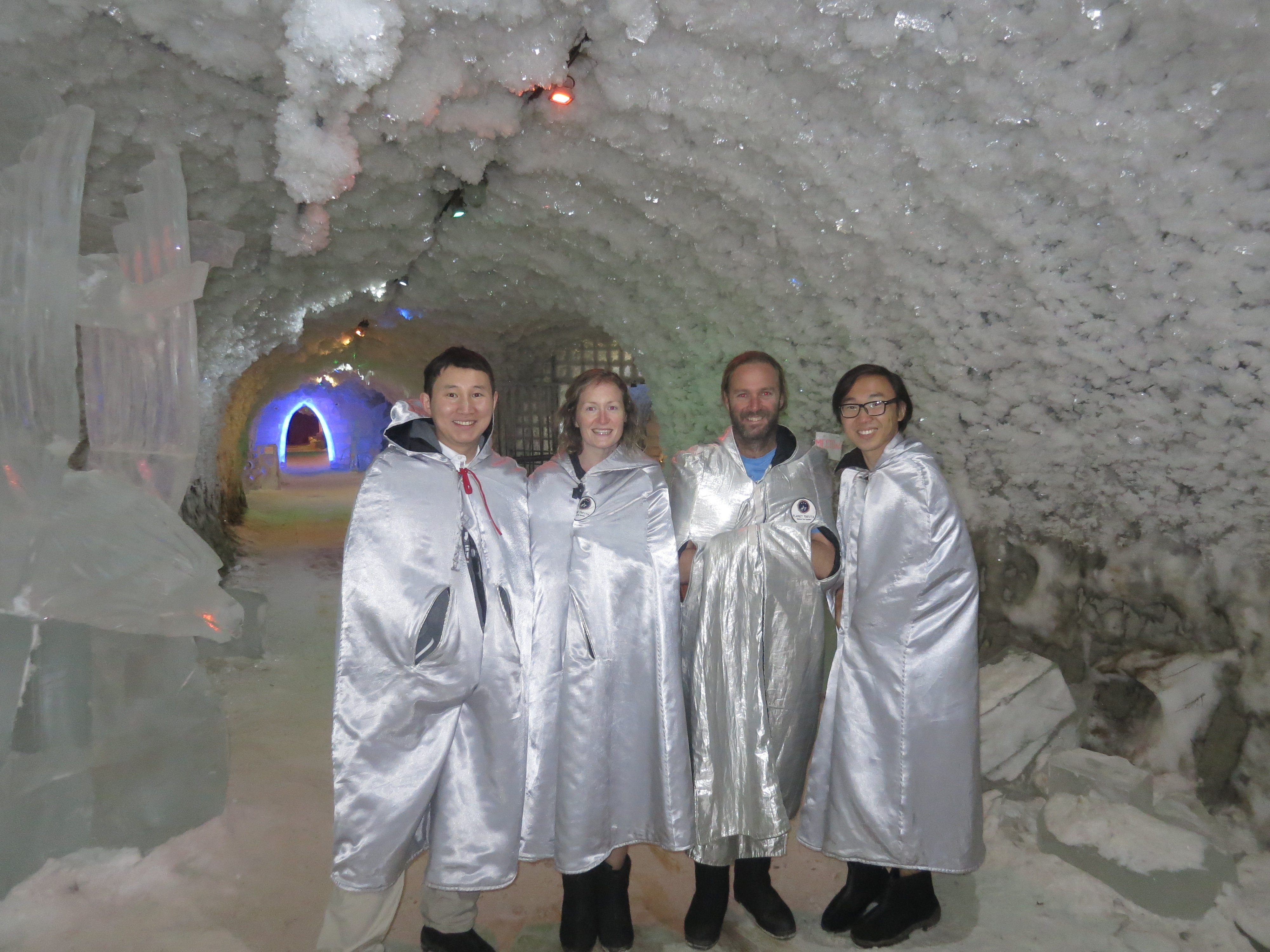
Raw horse meat
Raw horse meat is a delicacy amongst Sakha people – or at least some! Our Yakutsk-born friend Vasilly had never had it and didn't want to start now, but his mate Victor, brought up in the north, ate it enthusiastically. We tried it, along with some other Sakha food, but we weren't converted. It comes out as sliced bits of frozen meat, with a good bit of fat attached, and you dip it in salt and pepper – it tastes pretty much like it sounds (unless it sounds good!).
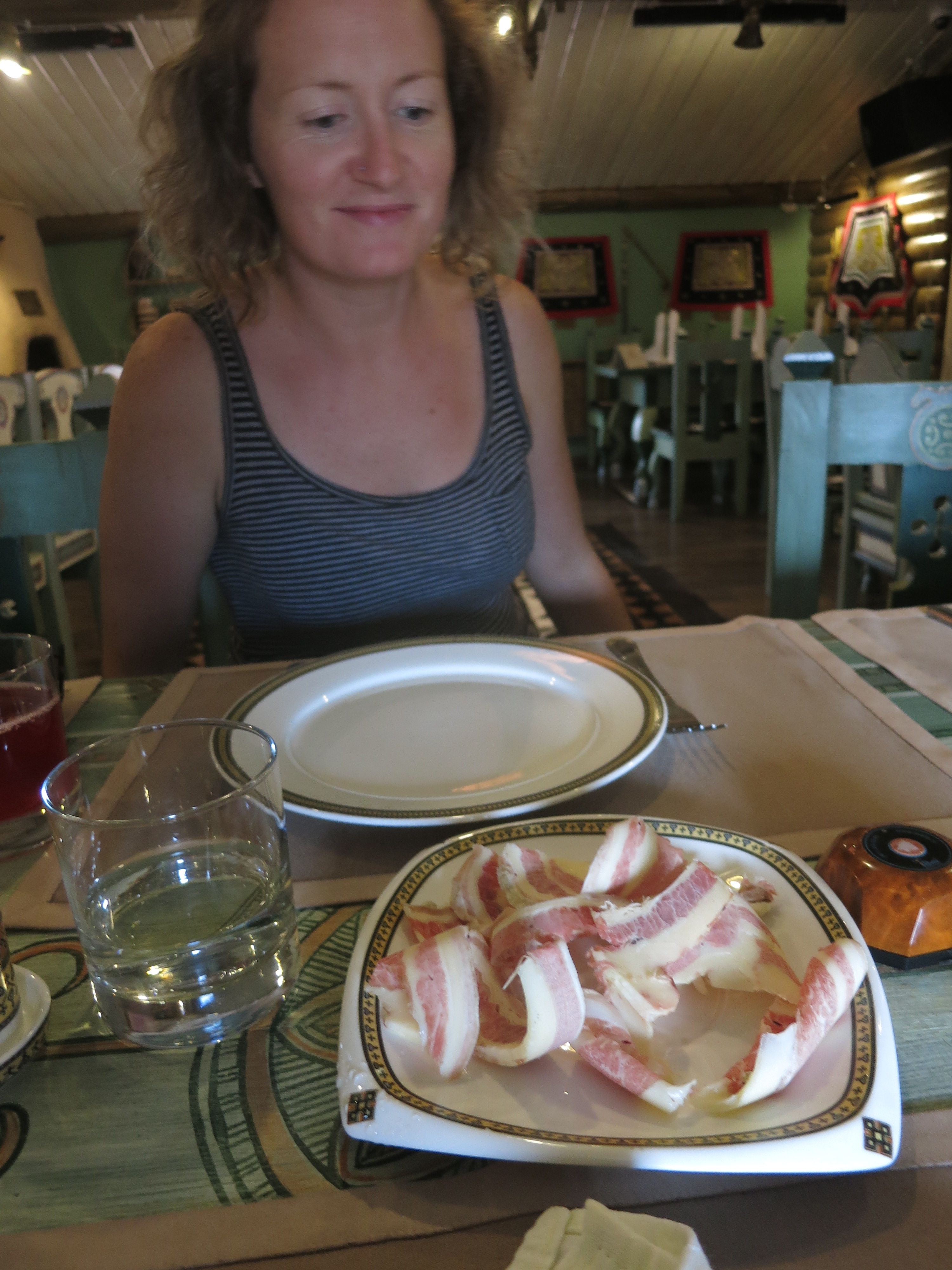 Too late to back out now
Too late to back out now
The old town
There is a part of the city which has old buildings and old-style paved streets, that is paved with logs stuck vertically to form kind of pavers, both with actual wood and with concrete blocks shaped like logs. There were different types of housing from the past, such as a Russian stockade from earlier colonial times and country-style wooden housing. It seemed like most of it has been relatively recently built, perhaps at an attempt at stimulating tourism, but one building was relatively old, the home of one of the Sakha heroes, who played a central part in the Communist revolution in Yakutia. It is now a small museum and we went in and got a very thorough explanation of each exhibit by the elderly caretaker, with Vasilly interpreting.
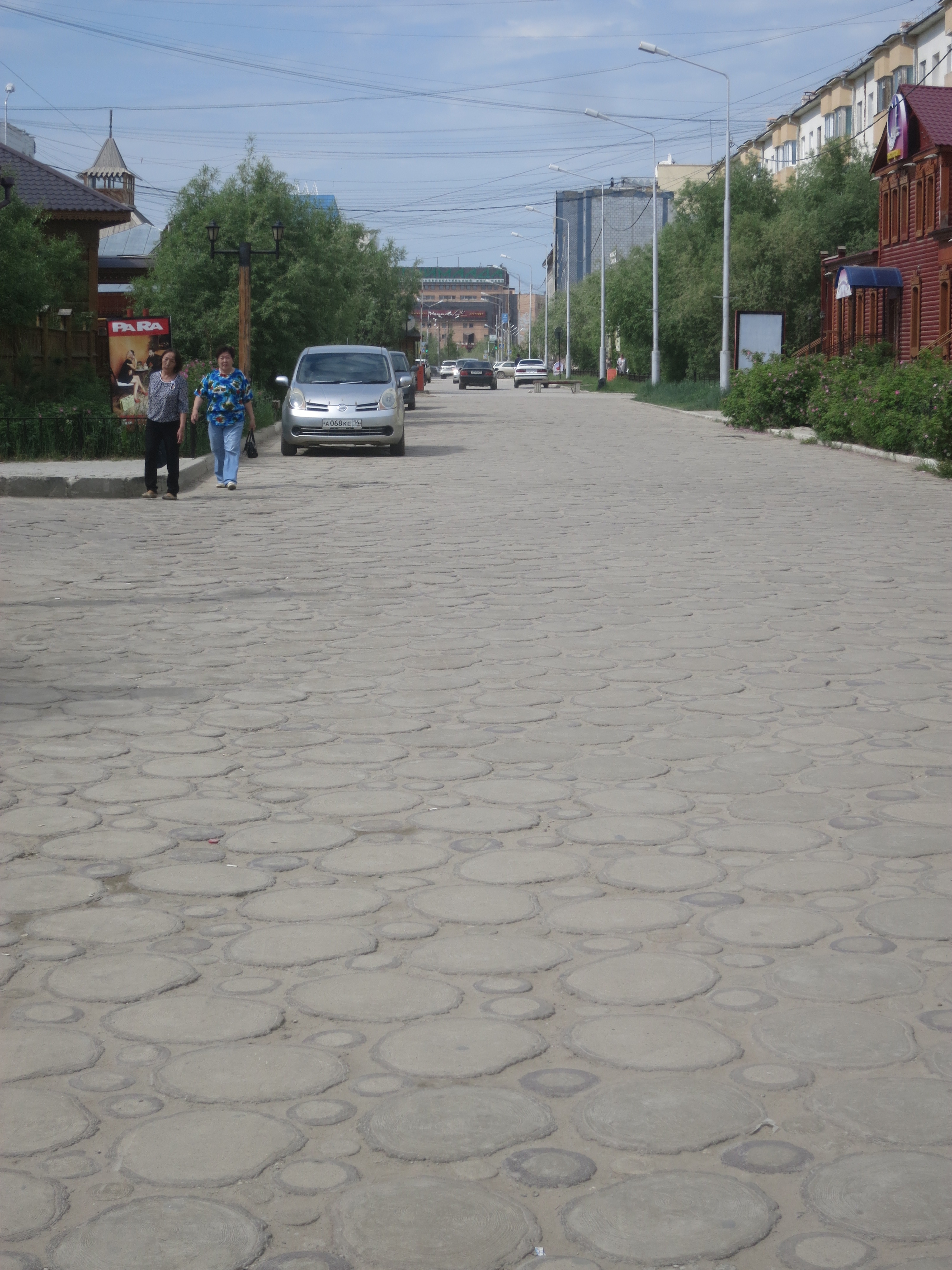 Concrete 'wooden pavers' in the old town, looking back towards the main square
Concrete 'wooden pavers' in the old town, looking back towards the main square
Colonialism
I couldn't help but compare Australia's experience of colonialism with Russia's, where, despite undoubted chauvinism during Soviet and earlier times, Indigenous people fought for and led the revolution, and now appear to participate equally in all areas of life. Perhaps there was a degree of assimilationism that we would find unacceptable … but perhaps not. The language is still spoken, all Sakha children go to Sakha schools where they learn their language, the shamanistic religion seems to be practiced openly and overall it seems ethnic Russians and Indigenous people get on as equals. When we were in Yakutsk it was the Russian national holiday, so, in the main square all the worthies were gathered to make speeches and there were various songs and dances performed – I don't know if things have intensified under Putin, but there was a great deal of talk about love of the Motherland, from Sakha and Russian alike. Anyway, it's hard to make anything but superficial observations about such a complex issue, but it contrasted strongly to Australia's effective apartheid.
The shaman 'church' we came across
Sakha language
The situation with the Sakha language is interesting – most of the Sakha people we spoke to were bi-lingual Sakha-Russian speakers (except the people who picked us up hitching, who knew no Sakha), speaking Sakha at home and, presumably, with friends, but in public they only spoke Russian, even to other Sakha people. There was some signage in Sakha, but not a great deal, but we did go to a charity concert in Sakha. It was somewhat like an indoor version of the concert we saw in Chau Doc, with a great variety of acts performing largely versions of western pop songs or traditional songs with a western pop arrangement, with the odd traditional piece – the performances were mostly in Sakha, with the odd Russian- or English-language song. Lady in Red performed in Sakha by a guy in an accountant's suit is an example! But we also say a short piece by this amazing Sakha group Ayarkhaan that I saw in Adelaide last year. There was also a comedy routine by three young fellas, that involved lots of running about and was evidently very funny, as well as a long story by an old bloke; apparently storytelling is a highly prized skill and there are competitions held to find the best storytellers! He certainly had a nice way about him and the audience was captivated, but, by this time, after two hours, we'd had enough and left before the end. It would've been great to be able to understand, but still, it was very interesting. The people spoke with a ready smile and a light humour very different from Russians – it was refreshing after all the Russian earnestness to be around smiles again!
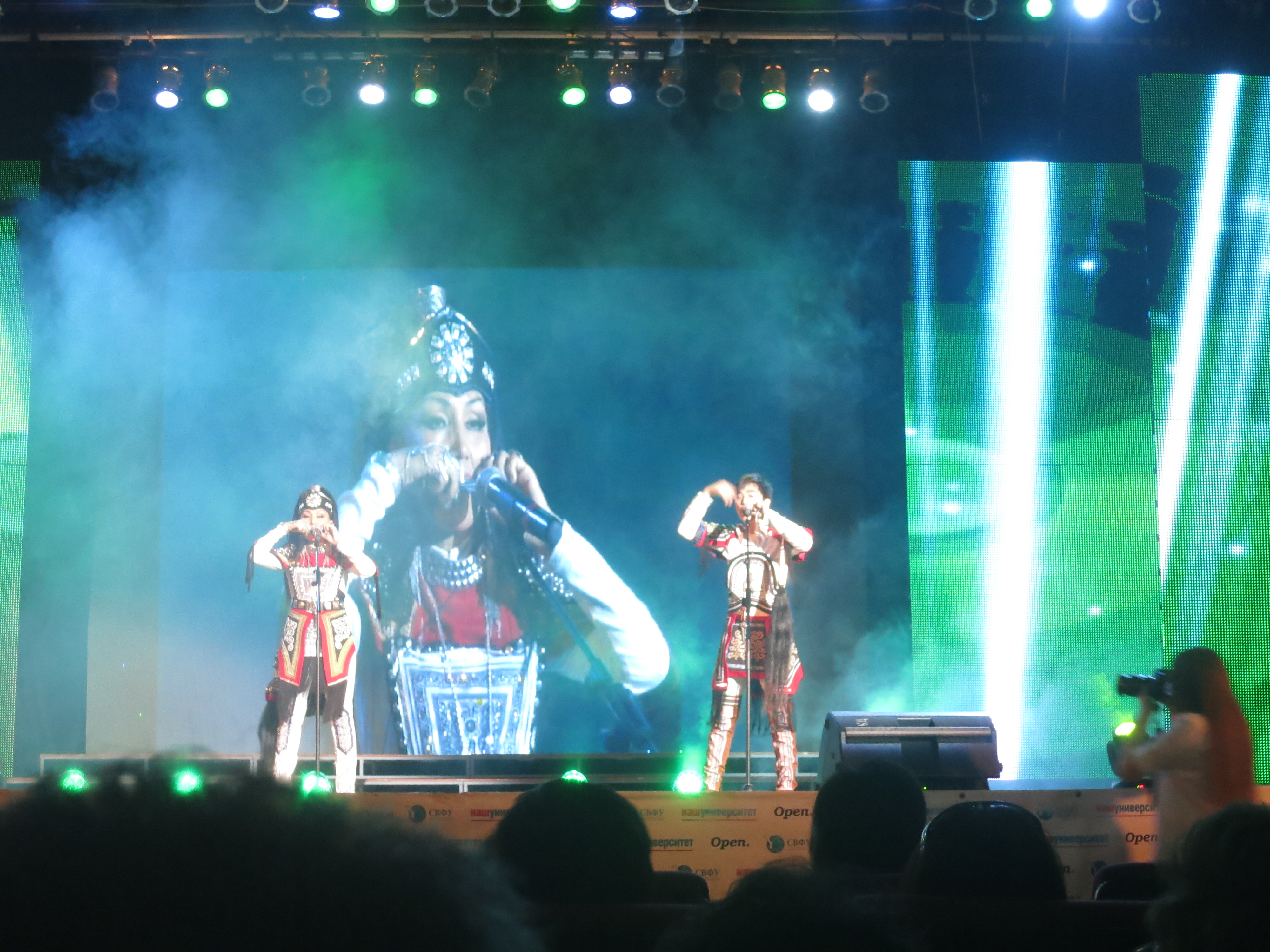
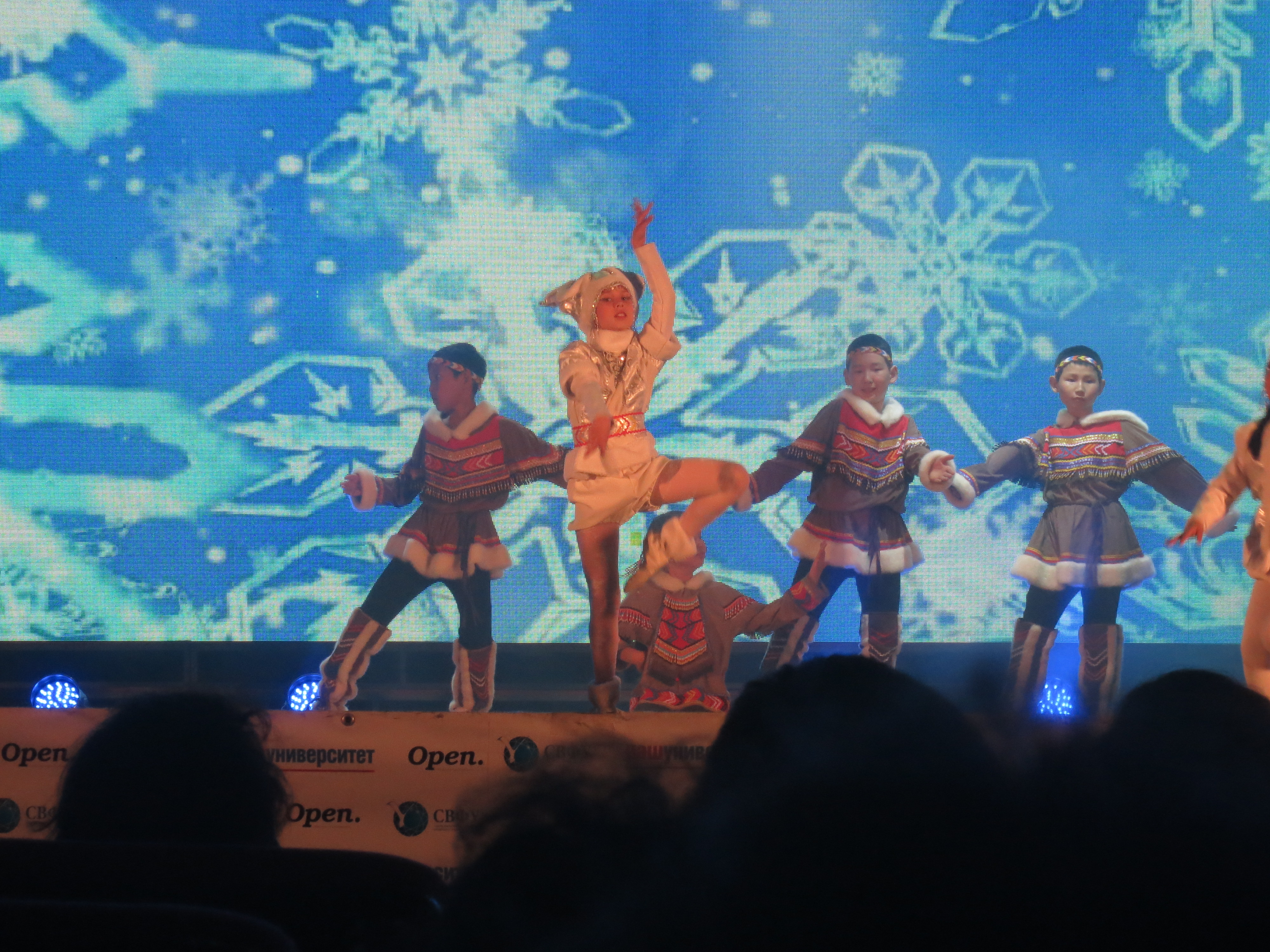
Smiling
I shouldn't be so harsh on Russians, they do smile and they're not always earnest, it's just that, by Anglo-Celtic standards, they don't readily smile. I find the Russians generally kind and helpful if you ask for help, but they mostly aren't very demonstrative about it, so, if you didn't understand the language, you could be forgiven for thinking that they were quite irritated! And it's not just Russians, many of the other ethnic groups within Russian, of which there are close to 150, are similar, as are close neighbours. In Vladivostok we left a Georgian restaurant, where we'd had a nice, long meal, some good, if slightly vodka-influenced, conversation with some hearty Georgian men, and, as we left, the staff sat staring at us almost expressionlessly, with a hint of implacable hatred. We remarked on it and our Russian friend Kate said, no, they were very happy and that that was clear from their body language!
Mammoth
We also went to the mammoth museum, which isn't as big as it sounds (boom, tish). As is the wont in Russia, this well-known and fascinating museum is almost completely unsigned, within a nondescript building in the university district. We arrived a bit late, but they kindly stayed open past closing and an enthusiastic young bloke gave us a detailed tour, with me stumbling along trying to interpret for Niamh. First we watched a movie in 3D about the discovery of a mammoth in northern Yakutia – it was really good actually, showing adventurous scientists in lots of waterproof clothing sloshing about in a cave or manmade tunnel, chipping ice away around the mammoth and taking samples. Then we had our tour, seeing real mammoth skeletons as well as a recreation of a mammoth, with fur made from horsehair. Because of the cold conditions, many living creatures, including ancient animals such as mammoths, are preserved in almost perfect condition in Yakutia – they even have blood and cells from mammoths and from some of this material there are plans to clone mammoths.
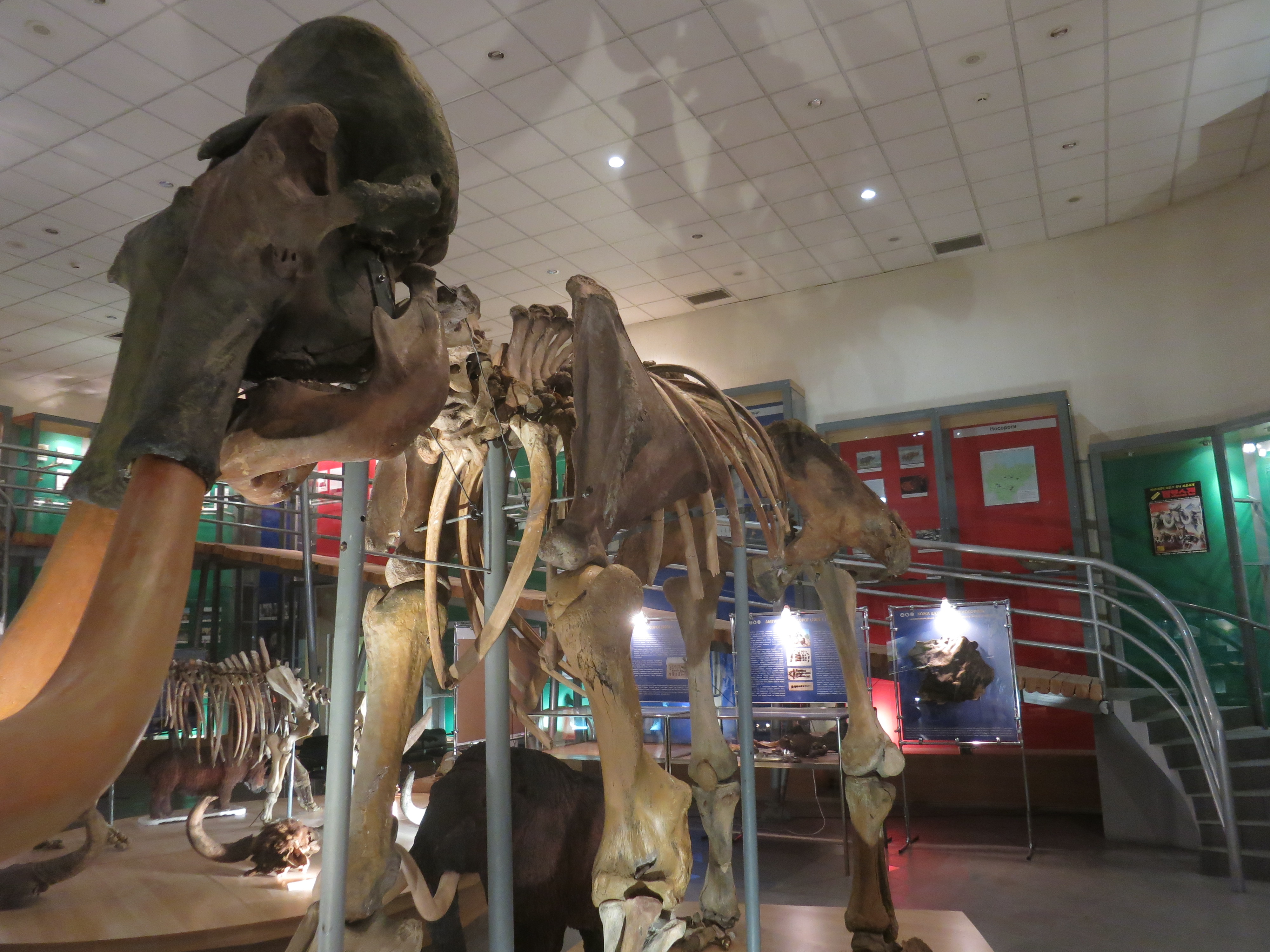
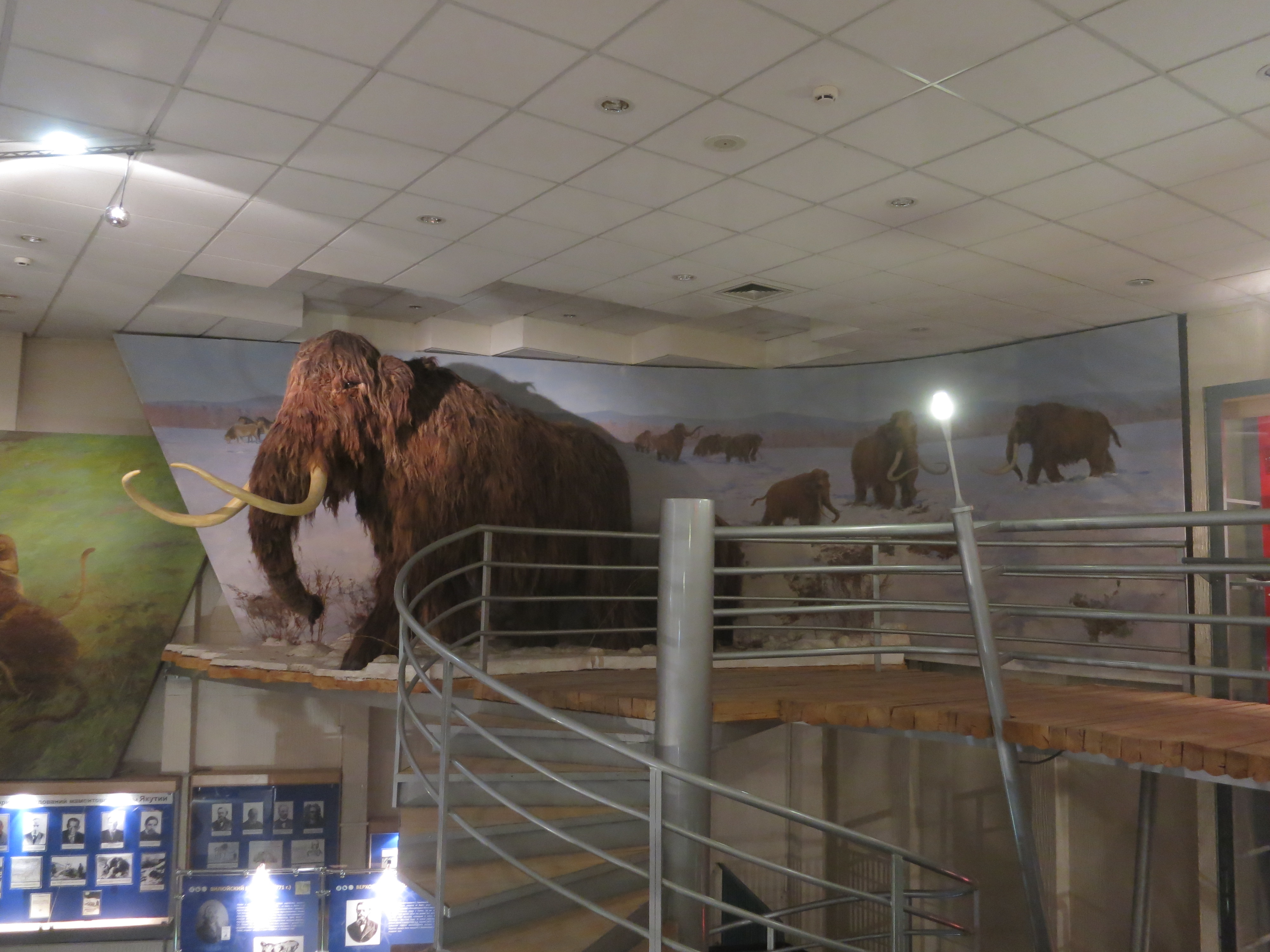
Old houses
Although much of Yakutsk was very Soviet in style, which means a big central square with Lenin in the middle, wide streets lined by apartment blocks and a general greyness, there were older sections with Siberian wooden housing, which were very pretty, if, at least near the centre, in very poor condition. On the outskirts and then dotted along the highway, there were similar houses, but generally in much better nick, often brightly painted and comfortable looking.
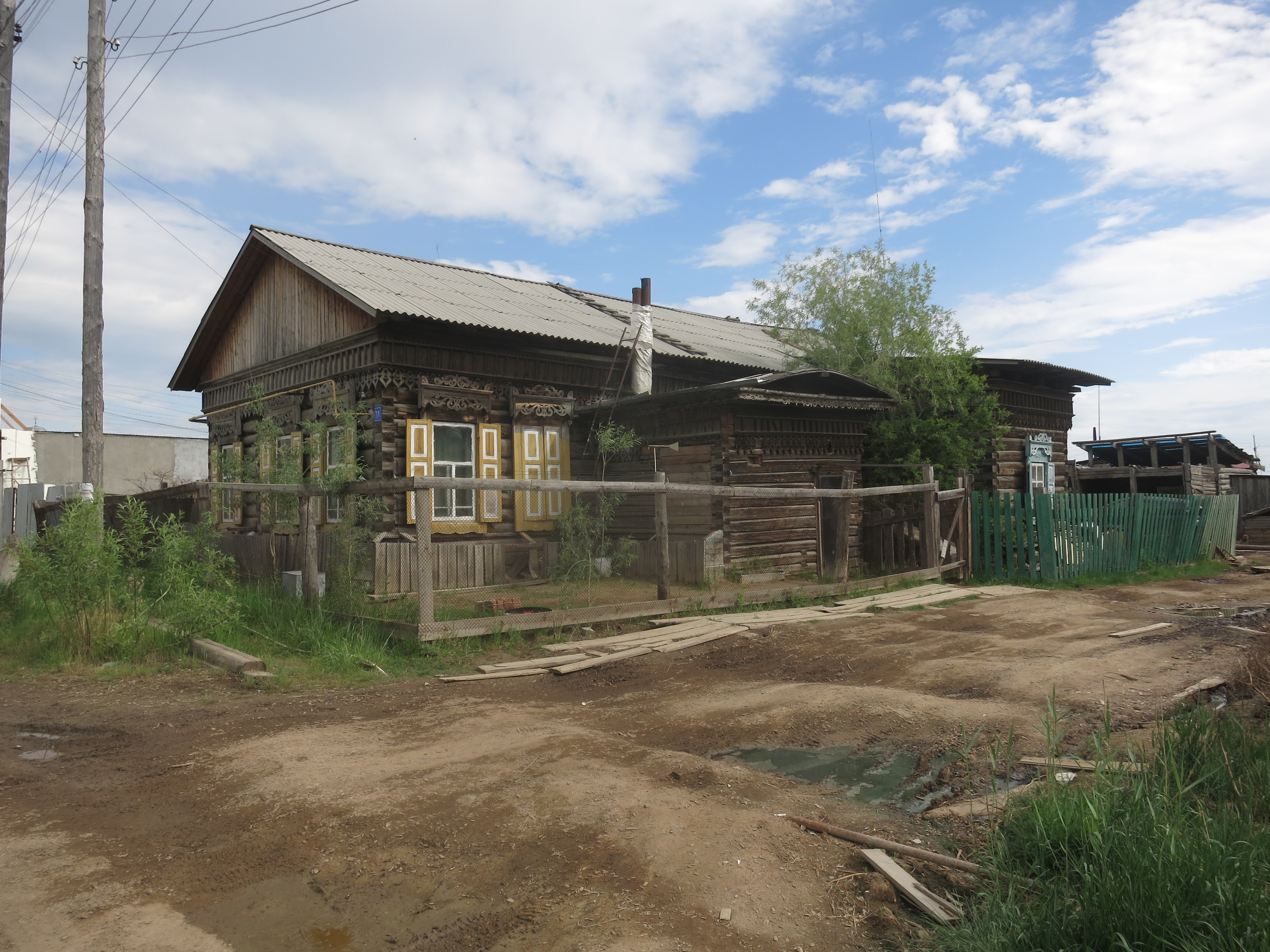
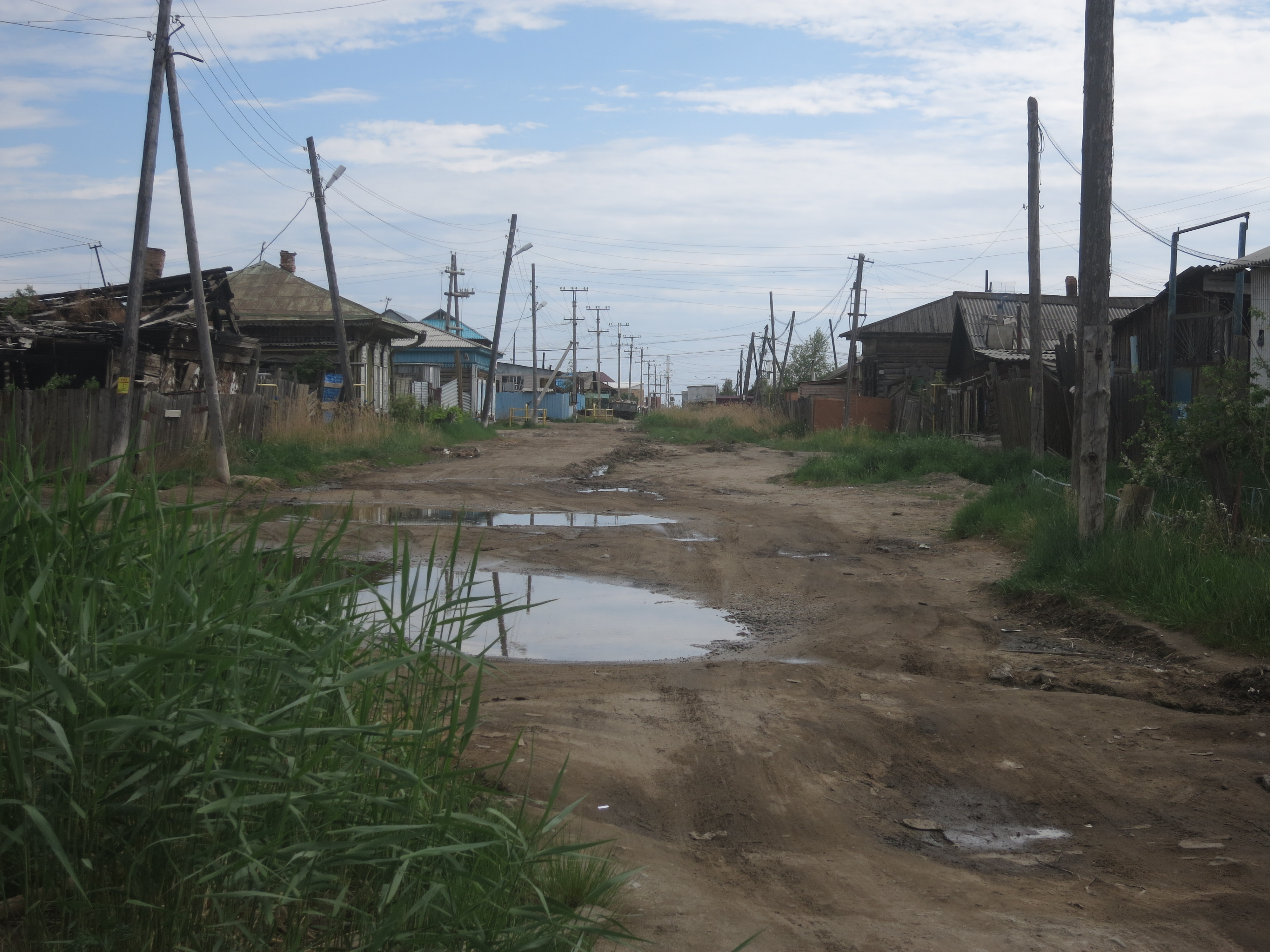
Yakutsk
We left Yakutsk in the late afternoon of our third day there, with the indispensable help of our new friends, Vasilly and Victor, who saved us half a day of traipsing and uncertainty, and organised tickets on a mini-bus south, then had us stay at Vasilly's place to be picked up. When I say late afternoon, I mean 6pm, which is actually mid-afternoon in Yakutsk in June, there being no proper night to speak of and the sun being well up in the sky at 6pm.
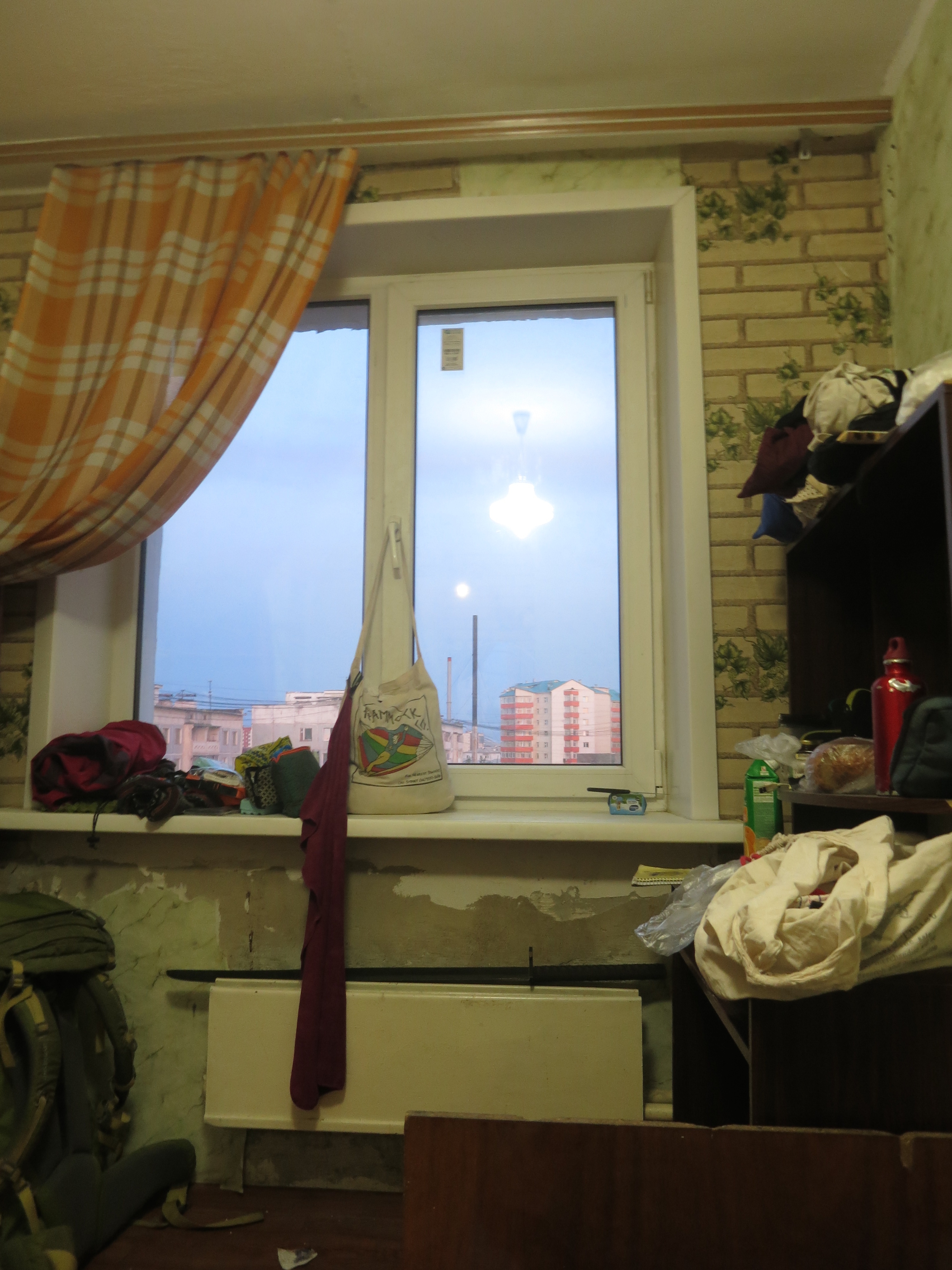 Full moon at midnight, from our couchsurfing pad.
Full moon at midnight, from our couchsurfing pad.
I am really glad to have been to Yakutsk, to have seen it, to have heard the wild stories of winter weather and to have met some locals. That said, it would take another trip, especially now that we know locals, to really get to know it, to see some of the bush and river around it and meet people more fully. Maybe another time – when the train is running!
If you ever are in this part of Russia though, I would still recommend it – just make sure you've got some concrete plans with some locals and don't arrive, as we did, dusty, dirty and already exhausted!
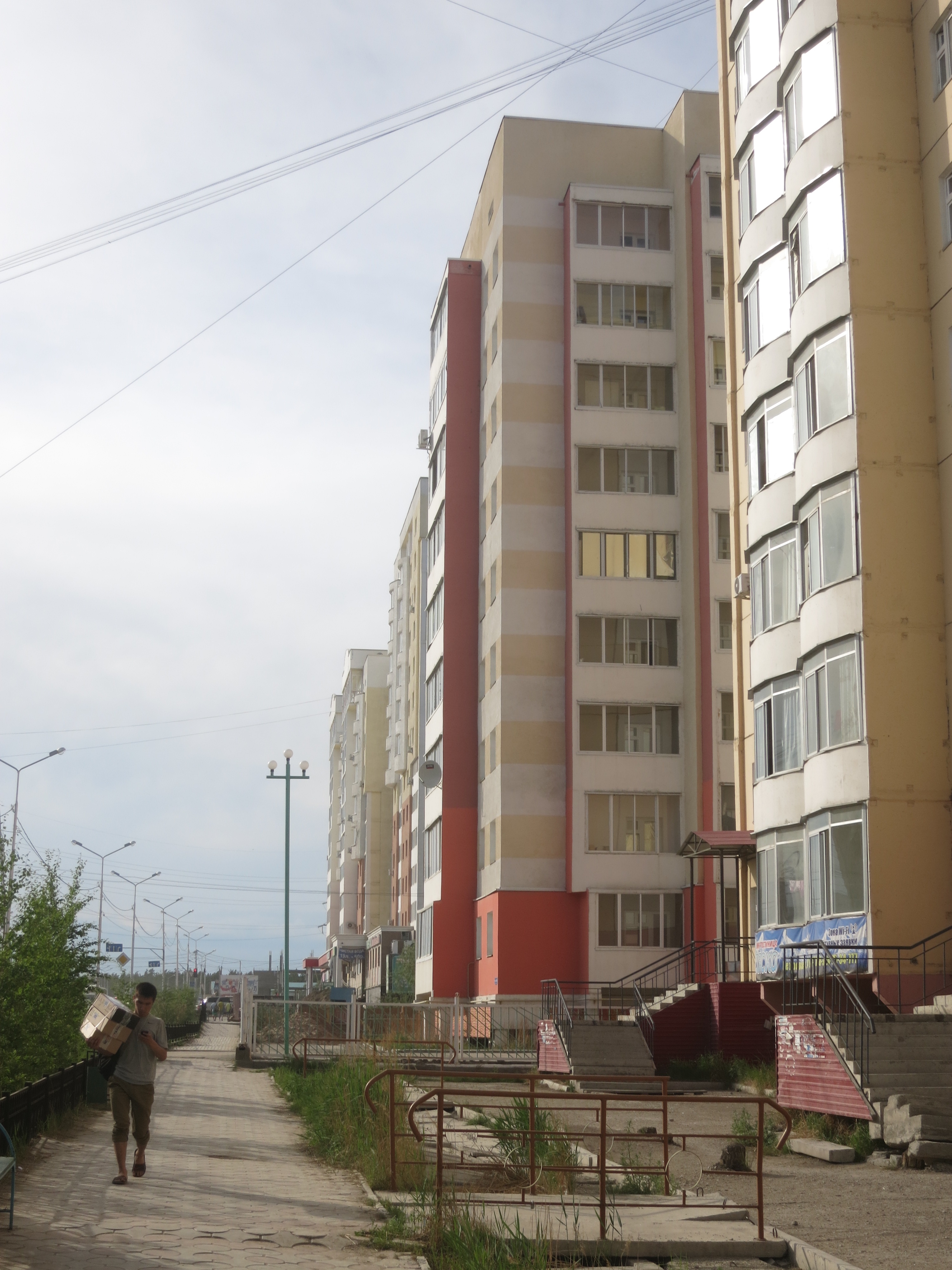 Lots of our short stay in Yakutsk was spent traipsing along streets like this.
Lots of our short stay in Yakutsk was spent traipsing along streets like this.
More photos of Yakutsk in this slideshow
To see notes on each photo click on the link to the album, otherwise just scroll through the photos above
